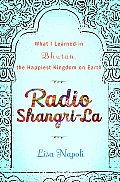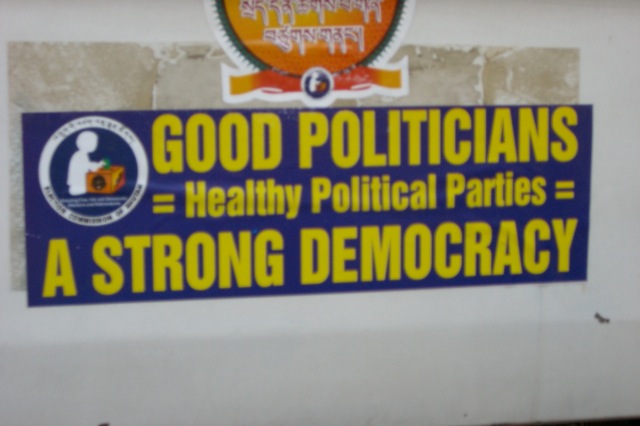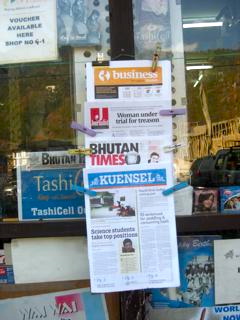
Recent world events have shown the power of Facebook and Twitter to disrupt the status quo in places that needed disruption. As these technologies have been lauded as key tools in a revolution, I've been thinking about the power of an old-fashioned medium, one that seems almost retro in the face of the new, digital tools: radio.
That's because a chance encounter at a cocktail party a few years ago led me to a ringside seat to a quiet yet substantial change in the Buddhist Kingdom of Bhutan, where I went to help at the start of the first youth-oriented radio station, Kuzoo, in early 2007.

The studio of Kuzoo FM, perhaps the only station in the world with a studio in...a former kitchen.
Just a few weeks before I arrived in this Himalayan nation that bills itself to tourists as the "last Shangri-La," the sitting king of Bhutan announced that he would abdicate the throne. His eldest son would rule in his stead, and prepare the country for its first democratic elections, to be held at a date to be determined by the royal astrologers.

A bumper sticker in advance of the first democratic elections, held in 2008.
A constitution had been in the works for several years, it seemed, and in it was a guarantee that press would be free. Suddenly, the radio station I was headed to volunteer with while on leave from my job at Marketplace took on a different cast.

Three copies of the Constitution of Bhutan, signed by the King and newly elected Parliament shortly after those first elections in 2008.
New newspapers cropped up to challenge the long-standing mainstay publication, the Kuensel Newspaper. Political parties formed and candidates stepped forward, and all the while Bhutan's citizens protested that they didn't trust themselves to elect a parliament. (Still, nearly 80% of them showed up at the polls.)

There are now seven newspapers published in the Kingdom, some of them daily.
Not since the King had allowed television and Internet in ten years before had there been such energy and excitement in this long-sequestered country improbably wedged between India and Nepal and Tibet.
Now, a tiny, mostly peaceful kingdom in the Himalayas led by a man generally adored by his people bears pretty much no resemblance to the situations that have gripped us in the Middle East of late. But given the situations in Libya, Egypt and Tunisia, it's interesting to consider what's gone on in Bhutan, and how media were seen as key tools in making democracy work. Certainly for me, as a journalist watching meaningful coverage from the news profession shrink each day and our governments go unchecked, it did.

A lama consecrated Bhutan's newest and now seventh radio station, Radio Wave, which launched in October, and gave the inaugural broadcast.
I'll be back tomorrow to talk more about it. If you've got any questions feel free to send them to me at [email protected]. And if you'd like to check out the first 30 pages of Radio Shangri-La, here you go.
Thanks to Powell's for having me here, and thanks for reading!